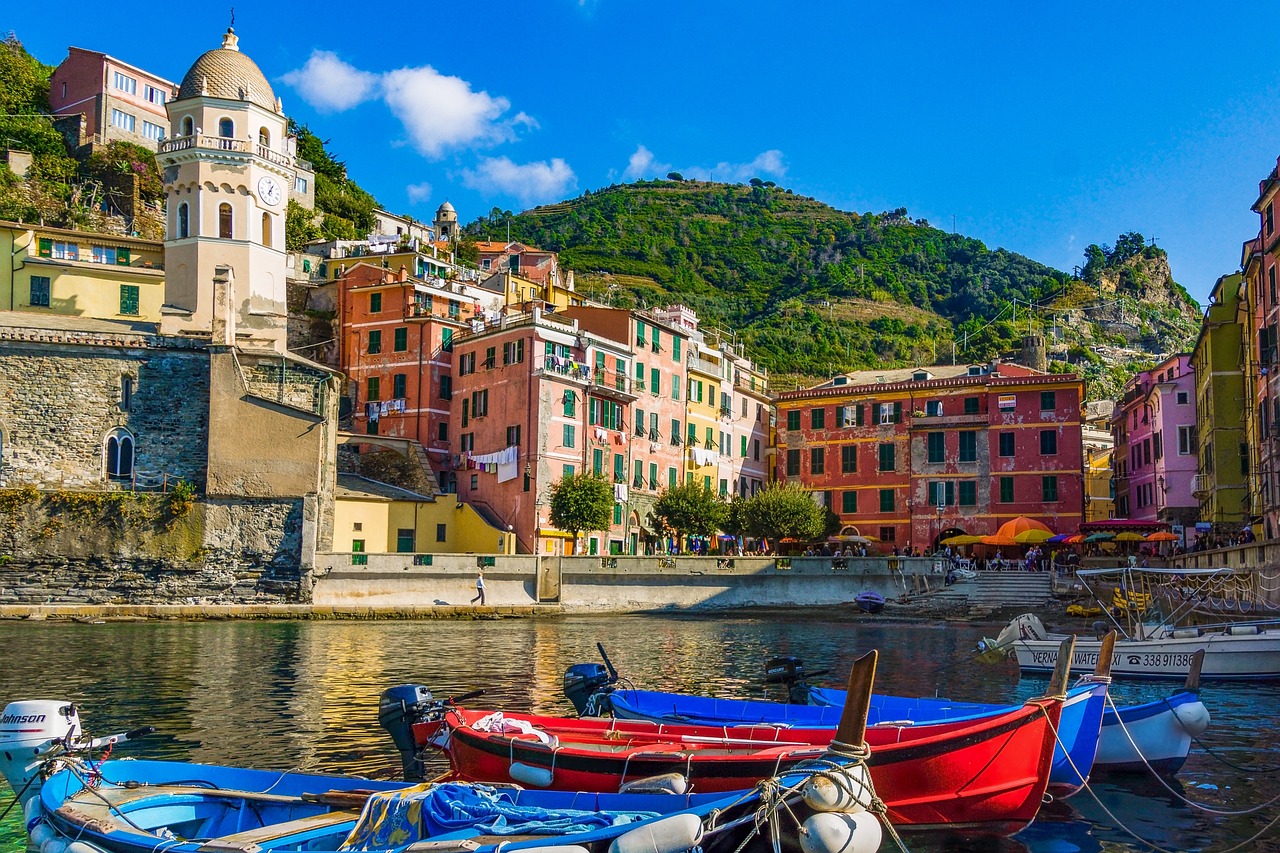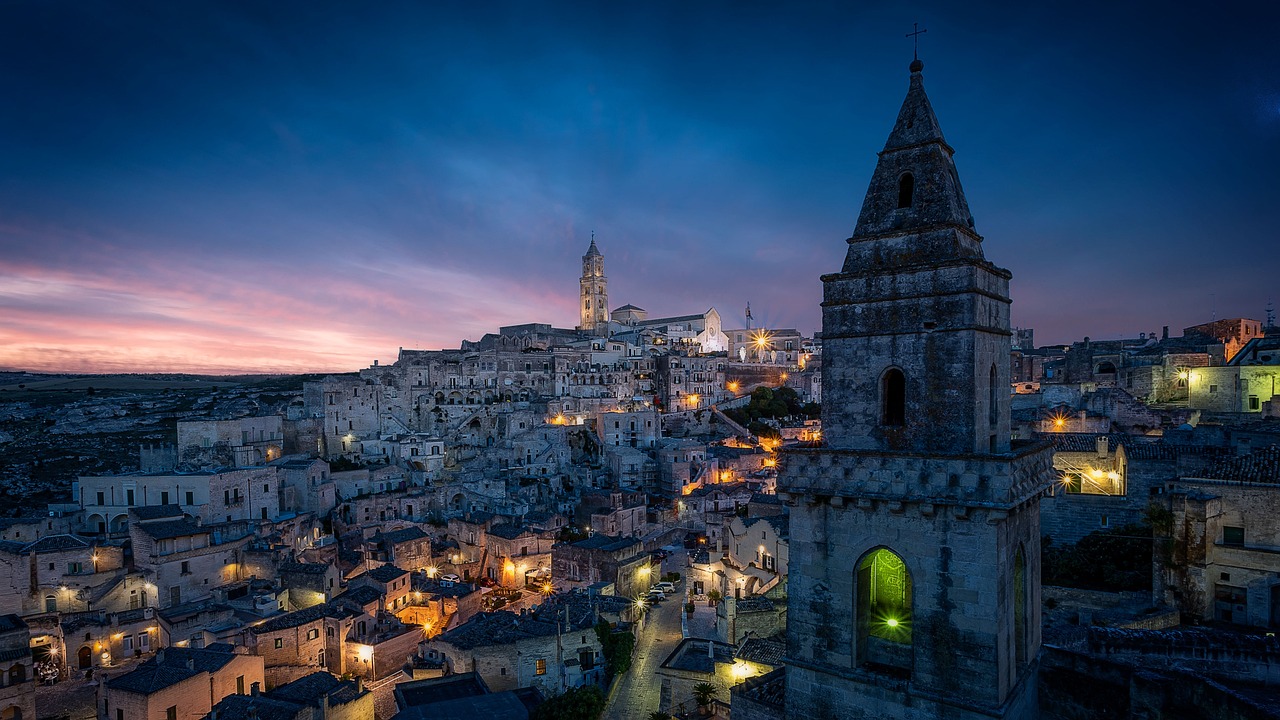Banking and Financial Services for Nomads in Italy
Italy is a beautiful country known for its rich history, stunning landscapes, and vibrant culture. It attracts a large number of nomads who are looking to experience its charm while maintaining their financial stability. In this article, we will explore the banking and financial services available for nomads in Italy, providing detailed information to help them navigate their financial needs during their stay.
Overview of the Italian Banking System
Italy has a well-established banking system that offers a wide range of financial services to both residents and non-residents. The country’s banking sector is regulated by the Bank of Italy, which ensures the stability and integrity of the financial system. Italian banks are generally reliable and offer various services tailored to meet the needs of different customer segments, including nomads.
- Opening a Bank Account: Opening a bank account in Italy as a non-resident is relatively straightforward. Most banks require a valid passport, proof of address in your home country, and proof of income or employment. Some banks may also ask for additional documentation, such as a reference letter from your current bank.
- Types of Bank Accounts: Italian banks offer different types of bank accounts, including current accounts, savings accounts, and foreign currency accounts. Current accounts are suitable for day-to-day transactions, while savings accounts allow you to earn interest on your savings. Foreign currency accounts are beneficial if you frequently deal with foreign currencies.
- Online and Mobile Banking: Italian banks have embraced technology, providing online and mobile banking services. These platforms allow you to manage your accounts, make transfers, pay bills, and monitor your transactions conveniently. Ensure that the bank you choose offers robust online and mobile banking services to suit your needs.
- ATMs and Cash Withdrawals: Italy has an extensive network of ATMs where you can withdraw cash using your debit or credit card. However, it’s essential to check if your bank charges any fees for international withdrawals and if the ATMs accept your card network (Visa, Mastercard, etc.).
- International Transfers: If you need to send or receive money internationally, Italian banks offer services for international transfers. These services may involve fees and exchange rate charges, so it’s advisable to compare the rates and fees offered by different banks to find the most cost-effective option.
Choosing the Right Bank
When selecting a bank in Italy, it’s crucial to consider factors such as accessibility, fees, services offered, and customer support. Here are some renowned banks in Italy that cater to the needs of nomads:
- UniCredit: UniCredit is one of the largest banks in Italy and offers a broad range of banking services. They have a user-friendly online platform and provide customer support in multiple languages.
- Intesa Sanpaolo: Intesa Sanpaolo is another prominent Italian bank that provides comprehensive financial services. They have a wide network of branches and ATMs throughout the country.
- Banca Monte dei Paschi di Siena: This bank is one of the oldest in the world and offers a range of services for both individuals and businesses. They have a strong presence in Tuscany and other regions.
- Banca Mediolanum: Banca Mediolanum is known for its innovative approach to banking and offers personalized services tailored to individual needs. They focus on investment and wealth management solutions.
Managing Finances as a Nomad in Italy
As a nomad in Italy, it’s essential to manage your finances effectively to ensure a smooth experience. Here are some tips to help you navigate financial matters:
- Budgeting: Create a budget to track your expenses and income. This will help you stay on top of your finances and make informed decisions.
- Foreign Exchange: Keep an eye on foreign exchange rates, especially if you frequently deal with different currencies. Consider using reputable currency exchange services or online platforms for better rates.
- Tax Obligations: Familiarize yourself with the tax laws in Italy and your home country to understand your obligations. Consult a tax professional if needed to ensure compliance.
- Insurance: Consider obtaining appropriate insurance coverage to protect yourself and your belongings while in Italy. This may include health insurance, travel insurance, or property insurance.
- Financial Planning: If you have long-term financial goals, seek advice from a financial planner who specializes in international clients. They can help you create a tailored plan to achieve your objectives.
Italy Image 1:

Banking Services for Nomads
Italian banks offer various specialized services for nomads to meet their unique financial needs. These services cater to travelers, digital nomads, and expatriates. Here are some key services to consider:
- Multi-Currency Accounts: Some banks provide multi-currency accounts that allow you to hold and manage different currencies in a single account. This can be beneficial if you frequently deal with multiple currencies.
- Travel Insurance: Banks often partner with insurance providers to offer travel insurance packages specifically designed for nomads. These packages may include coverage for medical emergencies, trip cancellations, and lost belongings.
- International Payments: If you need to make regular international payments, banks can provide solutions such as preferential exchange rates, lower fees, and faster transaction processing.
- Investment Opportunities: Some banks offer investment services tailored to nomads, allowing them to invest in stocks, bonds, and other financial instruments while maintaining flexibility and accessibility.
- Virtual Banking: Virtual banking services are gaining popularity among nomads. These services allow you to manage your finances entirely online, without the need for physical branches.
Italy Image 2:

ATMs and Currency Exchange
Italy has a vast network of ATMs where you can withdraw cash using your debit or credit card. ATMs are widely available in cities, towns, and tourist areas. However, it’s essential to be aware of potential fees and charges. Here are some points to consider:
- ATM Fees: Some banks may charge fees for using their ATMs, especially if you are a non-customer. Check with your bank about any applicable fees and consider withdrawing larger amounts to minimize transaction costs.
- Currency Exchange: While ATMs offer convenient currency exchange options, you can also find dedicated currency exchange offices in major cities and tourist areas. Compare rates and fees to ensure you get the best deal.
- Card Acceptance: Visa and Mastercard are widely accepted in Italy. However, it’s always a good idea to carry some cash for smaller establishments or places that may not accept cards.
Italy Image 3:

Conclusion
Italy offers a robust banking and financial services infrastructure for nomads, ensuring that they can manage their finances effectively during their stay. By understanding the available services, choosing the right bank, and adopting smart financial practices, nomads can enjoy their time in Italy while maintaining financial stability.
References
– Bank of Italy: www.bancaditalia.it
– UniCredit: www.unicredit.it
– Intesa Sanpaolo: www.intesasanpaolo.com
– Banca Monte dei Paschi di Siena: www.mps.it
– Banca Mediolanum: www.bancamediolanum.it


